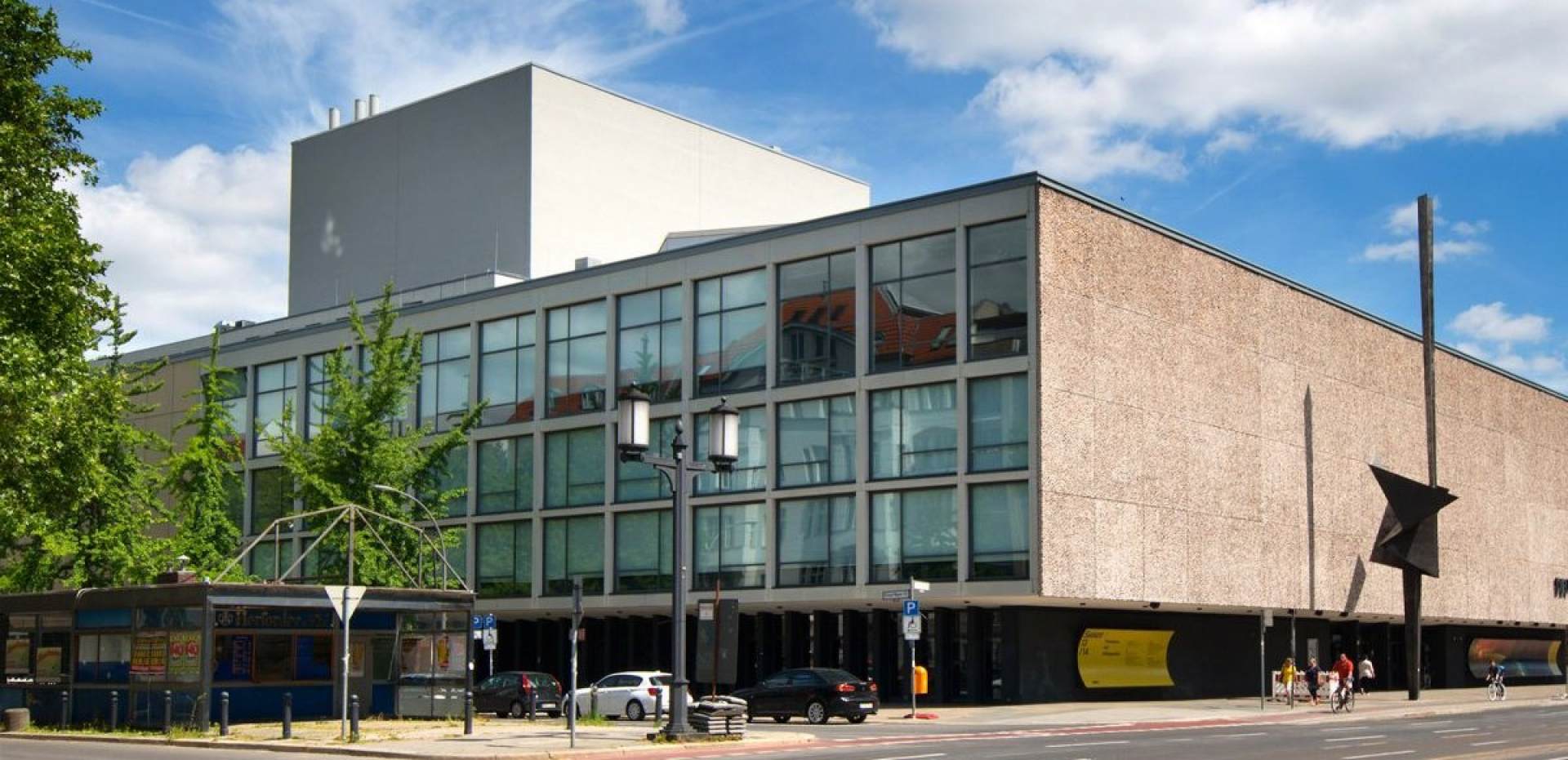Lash
Mo | Tu | We | Th | Fr | Sa | Su |
Lash - Rebecca Saunders [*1967]
Acts of Love
Opera in three acts by Rebecca Saunders
on a libretto by Ed Atkins and Rebecca Saunders
World premiere at the Deutsche Oper Berlin on 20 June 2025
Recommended for ages 16 and up.
Duration: 1 hour 30 minutes / No interval
In English with German and English surtitles
Pre-performance lecture (in German): 45 minutes prior to each performance
About the performance
About the work
A woman finds herself on the verge of death when a seemingly endless cascade of questions comes pouring out of her, all directed toward a beloved, coveted and absent Other. With these are memories of a life well lived, of the longing for love and sex, of the faltering of her yearning and the tragedy of death behind it. The woman breaks down into four different facets of her own personality, each depicted by a different performer, representing the various perspectives and viewpoints of one individual. What forms is a web of interconnections between seeing and being seen, touching and being touched, feeling and being felt, understanding and being understood. It is a sensual play about sex, the body, love and death – with a surprising ending. LASH is the first opera by celebrated German-British composer Rebecca Saunders. With it, she is creating a work about the base, existential experiences of the human body that we spend our lives in and with which we experience and comprehend the world around us. The work is based on the strikingly pictorial texts of video artist and writer Ed Atkins.
About the production
LASH will be staged by the Irish directing collective Dead Centre with the two directors Ben Kidd and Bush Moukarzel, the set and costume designer Nina Wetzel and the video artist Sebastian Dupouey. Dead Centre already staged the world premiere of Giorgio Battistelli's IL TEOREMA DI PASSOLINI here in 2023. With LASH, they are now going one step further towards an opera aesthetic that moves in a field of tension between concrete narration and the creation of rather abstract spaces of perception and experience and the worlds of hearing, seeing and feeling created therein. LASH will therefore feature large-format dream images on the verge of abstraction as well as concrete snapshots of the protagonist's life, which has disintegrated into fragments. There will be a microscopic view of the smallest body details such as eyelashes, skin flakes or hair, enlarged to stage-filling format, but also a gradually piecing together puzzle of a life with its desires and the question of the extent to which these have been fulfilled, with concrete encounters, hopes and disappointments.
Program and cast
Conductor: Enno Poppe
Director: Dead Centre
Set design, Costume design: Nina Wetzel
Light design: Stephen Dodd
Video: Sébastien Dupouey
Dramaturgy: Sebastian Hanusa
Actors: Anna Prohaska
Actors: Noa Frenkel
Actors: Sarah Maria Sun
Actors: Katja Kolm
Synthesizer: Christoph Grund
Synthesizer: Ernst Surberg
E-Guitar: Adrian Pereyra
Orchestra: Orchester der Deutschen Oper Berlin
Deutsche Oper Berlin
The Deutsche Oper Berlin is an opera company located in the Charlottenburg district of Berlin, Germany. The resident building is the country's second largest opera house and also home to the Berlin State Ballet.
The company's history goes back to the Deutsches Opernhaus built by the then independent city of Charlottenburg—the "richest town of Prussia"—according to plans designed by Heinrich Seeling from 1911. It opened on November 7, 1912 with a performance of Beethoven's Fidelio, conducted by Ignatz Waghalter. After the incorporation of Charlottenburg by the 1920 Greater Berlin Act, the name of the resident building was changed to Städtische Oper (Municipal Opera) in 1925.
Deutsches Opernhaus, 1912
With the Nazi Machtergreifung in 1933, the opera was under control of the Reich Ministry of Public Enlightenment and Propaganda. Minister Joseph Goebbels had the name changed back to Deutsches Opernhaus, competing with the Berlin State Opera in Mitte controlled by his rival, the Prussian minister-president Hermann Göring. In 1935, the building was remodeled by Paul Baumgarten and the seating reduced from 2300 to 2098. Carl Ebert, the pre-World War II general manager, chose to emigrate from Germany rather than endorse the Nazi view of music, and went on to co-found the Glyndebourne opera festival in England. He was replaced by Max von Schillings, who acceded to enact works of "unalloyed German character". Several artists, like the conductor Fritz Stiedry or the singer Alexander Kipnis followed Ebert into emigration. The opera house was destroyed by a RAF air raid on 23 November 1943. Performances continued at the Admiralspalast in Mitte until 1945. Ebert returned as general manager after the war.
After the war, the company in what was now West Berlin used the nearby building of the Theater des Westens until the opera house was rebuilt. The sober design by Fritz Bornemann was completed on 24 September 1961. The opening production was Mozart's Don Giovanni. The new building opened with the current name.

 EN
EN DE
DE IT
IT FR
FR ES
ES RU
RU JP
JP RO
RO
 Seating plan
Seating plan 